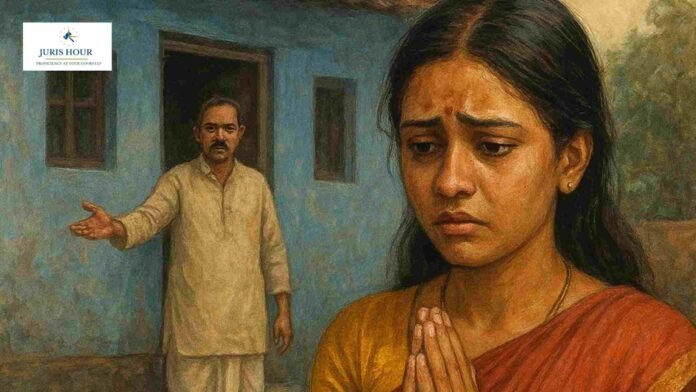The Chhattisgarh High Court has ruled that a daughter cannot claim a share in her deceased father’s property if he passed away before the Hindu Succession Act, 1956, came into force.
The bench of Justice Narendra Kumar Vyas clarified that in cases where father passed away before the Hindu Succession Act, 1956, came into force, inheritance would be determined according to the Mitakshara Law, which was in effect before the 1956 legislation and recognised only sons as rightful heirs to a father’s property.
The ruling came while hearing a second appeal filed by the legal heirs of one Ragmania, who had sought a share in the estate of her father, Sudhin, a resident of Surguja district. The High Court observed that Sudhin had died around 1950–51 — several years before the enactment of the Hindu Succession Act — and therefore, the property’s succession had already been established under the then-prevailing Mitakshara Law.
“When a Hindu governed by Mitakshara Law died before 1956, his separate property would completely devolve upon his son. A female child could claim a right in such property only in the absence of a male child,” the Court said in its judgment.
The Court emphasised that the 1956 Act cannot be applied retrospectively to alter successions that had already opened prior to its commencement. Once succession has been determined under the earlier law, it cannot be reopened or modified based on later legal developments.
The judgment thus reaffirms that if a father passed away before the enforcement of the Hindu Succession Act, daughters cannot inherit his property under the provisions of the modern law.
Before the enactment of the Hindu Succession Act, 1956, property inheritance among Hindus was largely governed by two traditional systems — the Mitakshara and Dayabhaga schools of law.
Under the Mitakshara system, which prevailed across most parts of India, property was typically patriarchal. Sons acquired a share in ancestral property by birth, while daughters were excluded unless there were no surviving male heirs.
The Dayabhaga system, followed mainly in Bengal and Assam, allowed inheritance only after the father’s death and provided relatively more flexibility for female heirs.
The 1956 Act significantly changed this framework by codifying Hindu inheritance laws and ensuring greater uniformity across regions. The law was further amended in 2005, granting daughters equal coparcenary rights in joint family property, bringing them on par with sons.
However, courts have consistently held that these statutory changes apply only if the succession opened after the Act came into force — meaning that rights determined before 1956 continue to be governed by the old Mitakshara principles.
Case Details
Case Title: Smt. Ragmania Versus Jagmet
Case No.: SA No. 178 of 2014
Date: 13 .10.2025
Counsel For Petitioner: Rahul Kumar Mishra, Advocate
Counsel For Respondent: Divyanand Patel, Advocate
Read More: BigWin For Sachin Tendulkar | IPL Match Fees Not Taxable as Business Support Service: CESTAT

